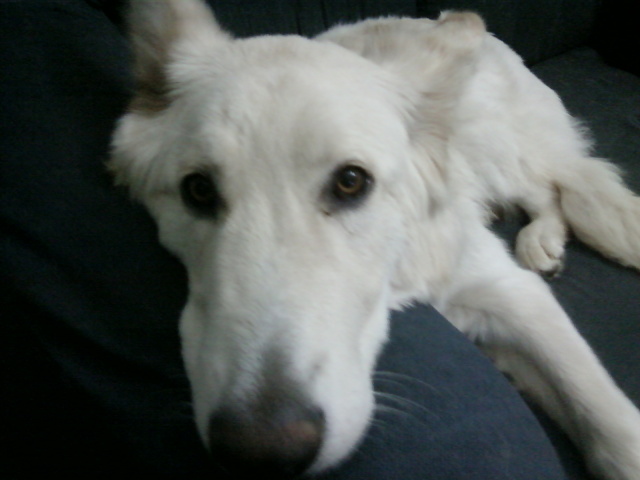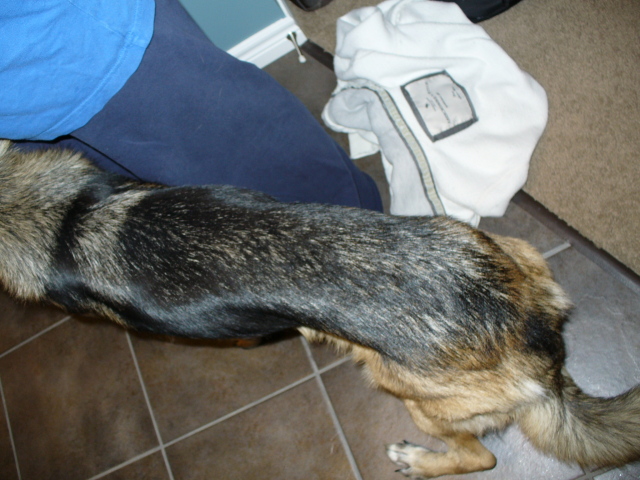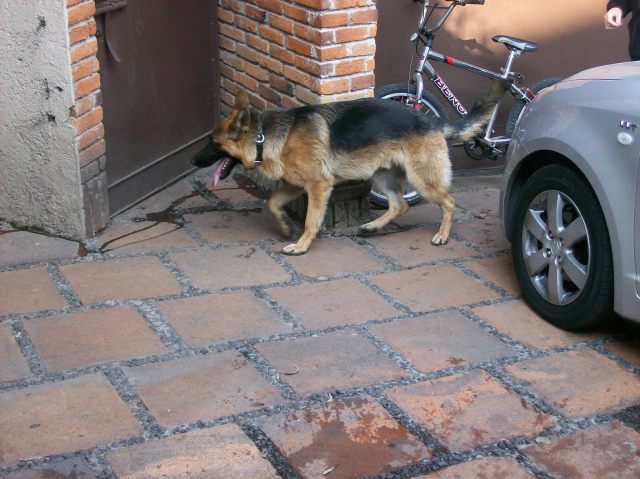Question
 Kelsie
Kelsie
Hi, we have two dogs and the second one is a female white GSD who is now 7 months old - Kelsie. We did the same as what we did with the first dog - a border collie X Husky - Bailey (who loves people and dogs and is confident) - we took her to the dog park once she was fully clear after vaccinations and she'd grown up around my friend's four dogs as well as our other dog. However, the first time at the dog park wasn't a good one for her. She got trampled by an over-excited black lab and she didn't like how people just rushed up to her and tried to pat her and cuddle her without her being able to sniff first. Months on, she hates all black labs and doesn't trust anyone she doesn't already know! With my family and friends she's friendly and cuddly and everything she should be - but last Christmas she actually bit one of my family members she hadn't met before simply because he tried to pat her and then walked past. She got scared and nipped the back of his leg. I've heard that this sort of traumatic experience is hard to get past with GSDs... please help! I want everyone to see her how we do!
Thank you, Michelle.
AnswerDogs vary. Many people discount the importance of early socialization because some dogs, perhaps your Bailey, do fine without it. Some breeds and some lines within a breed tend to be suspicious of strangers. In a Shepherd, this is best avoided by plenty of exposure to people at an early age. The great trainer Ian Dunbar says puppies should meet 100 people before 12 weeks old. The period between 6-12 weeks is a dangerous time. One sniff where a sick dog relieved itself in the last 6 months can bring on parvo or another life threatening disease. Fail to expose it to strangers, including men, women, children, noise, etc. and you could end up with a misfit you can't take out in public. They also need continuing contact with other dogs, but it must be limited to ones you know are getting good care.
Many people add to the problem by behavior dogs don't like. If your relative looked her in the eye, showed their teeth in a smile, and patted the top of her head, that is a big part of the problem.
It takes a long time to work a dog out of rejecting strangers. People need to avoid the behaviors I mentioned and offer the dog treats. Most dogs respond positively to butt rubs.


 Very thin German Shepherd
Question
Sadie
Hi
We are having problems getting our
Very thin German Shepherd
Question
Sadie
Hi
We are having problems getting our
 purebreed german shepherd?
Question
king
I purchased a dog 2months ago and he weig
purebreed german shepherd?
Question
king
I purchased a dog 2months ago and he weig
 My German Shepherd Acts Scared
Question
Mannie
I have a male 1/2 German Shepherd 1/2 H
My German Shepherd Acts Scared
Question
Mannie
I have a male 1/2 German Shepherd 1/2 H
 doubts on my GSD growth
Question
Tosco Dog
Hi Labman, I wanted to ask you until
doubts on my GSD growth
Question
Tosco Dog
Hi Labman, I wanted to ask you until
 6 month pup
Question6 month old female
QUESTION: I was offer
6 month pup
Question6 month old female
QUESTION: I was offer